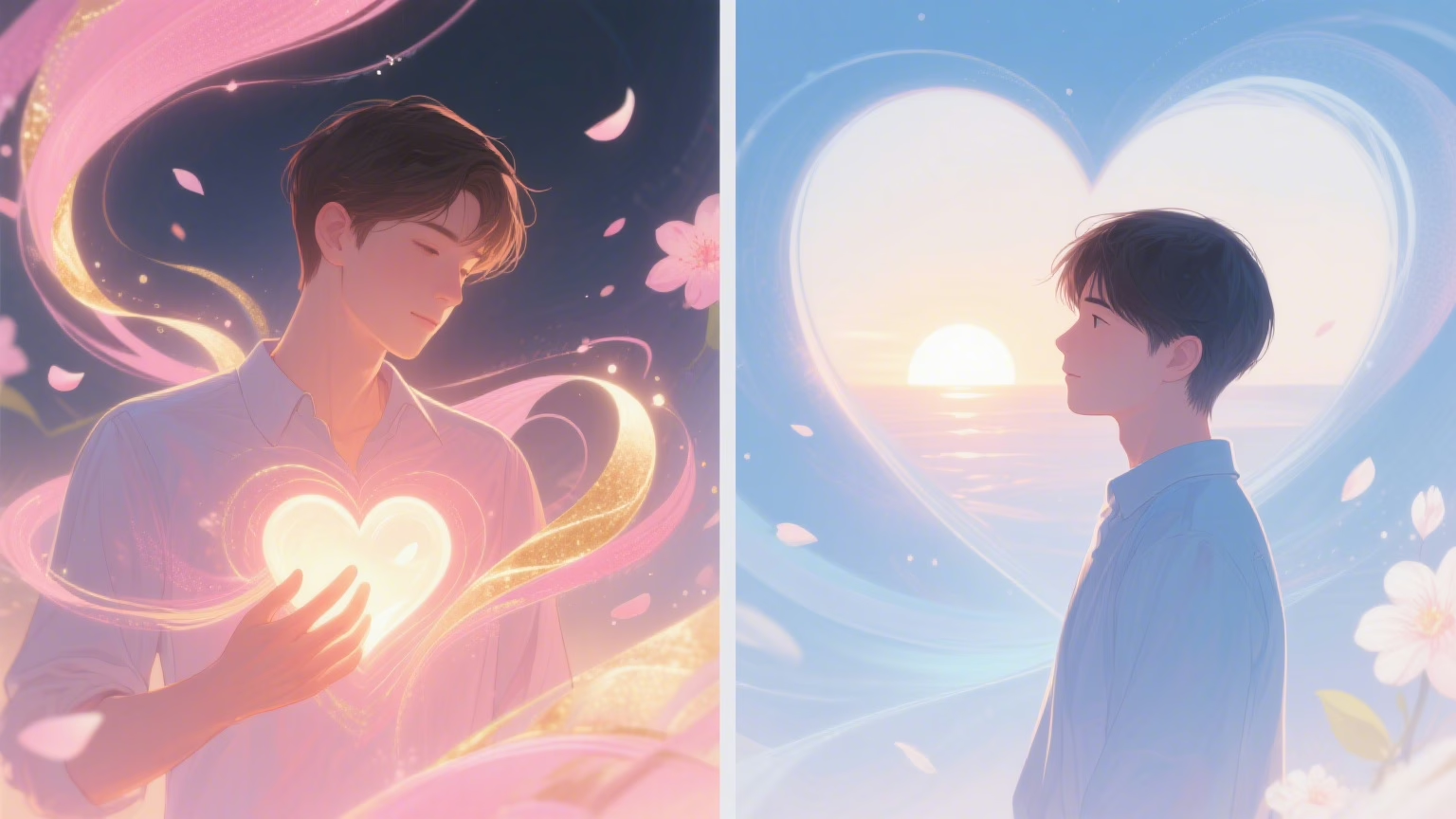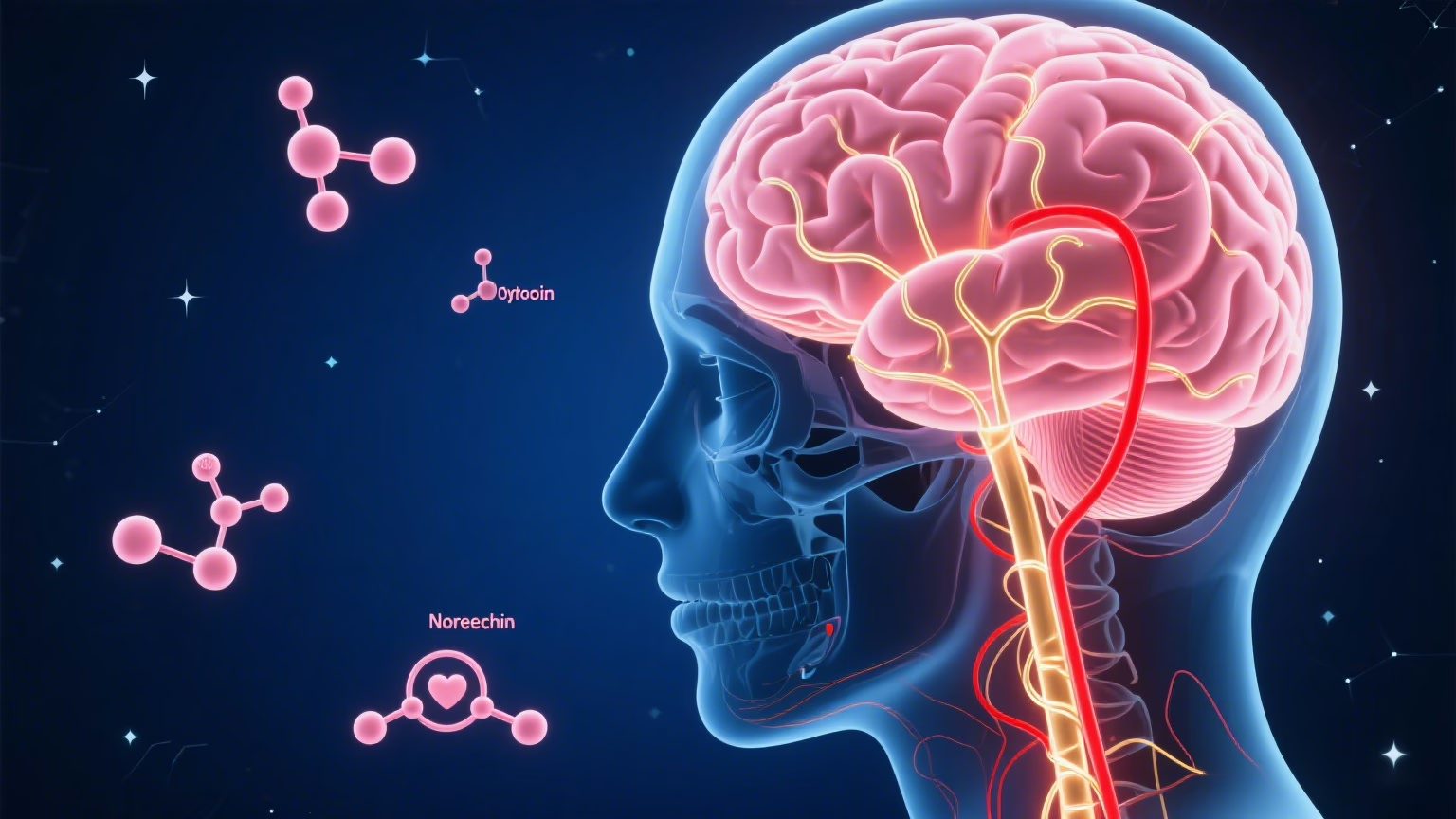Introduction
Have you ever wondered why some people seem to fall head over heels in love within days or weeks, while others take months or even years to develop deep romantic feelings? The speed at which we fall in love isn’t just a matter of chance or circumstance—it’s deeply rooted in psychology, neuroscience, and our individual emotional makeup.

Understanding the psychology behind rapid romantic attachment can help us better comprehend our own relationship patterns and those of others. Whether you’re someone who falls fast or takes your time, there’s fascinating science behind these different approaches to love.
The Science Behind Falling in Love
Neurochemical Factors
When we fall in love, our brains undergo significant neurochemical changes. The release of dopamine, norepinephrine, and phenylethylamine creates what researchers call the “cocktail of love.” Some individuals have heightened sensitivity to these neurochemicals, making them more susceptible to intense romantic feelings.
Dr. Helen Fisher, a renowned anthropologist and love researcher, identifies three brain systems involved in love: lust, romantic attraction, and attachment. People who fall in love quickly often have more active dopamine pathways, which are associated with reward-seeking behavior and intense focus on a romantic partner.

Attachment Styles and Their Impact
One of the most significant factors influencing how quickly someone falls in love is their attachment style, developed in early childhood through interactions with caregivers.
Anxious Attachment Style: Individuals with anxious attachment often fall in love quickly because they crave intimacy and connection. They may interpret early romantic interest as a sign of deep compatibility and rush toward emotional intimacy. Their heightened sensitivity to rejection can paradoxically make them more eager to secure romantic bonds quickly.
Secure Attachment Style: Those with secure attachment typically develop feelings at a moderate pace. They’re comfortable with intimacy but don’t feel compelled to rush the process. They tend to evaluate compatibility more thoroughly before fully committing emotionally.
Avoidant Attachment Style: People with avoidant attachment usually take longer to fall in love, if they allow themselves to do so at all. Their self-protective mechanisms often prevent the rapid emotional vulnerability required for quick romantic attachment.
Disorganized Attachment Style: This style can lead to unpredictable patterns in falling in love, sometimes alternating between rapid attachment and emotional withdrawal.
Personality Traits That Accelerate Love
High Emotional Sensitivity
Highly sensitive people (HSPs) often experience emotions more intensely than others. This emotional depth can translate to falling in love more quickly and deeply. Their enhanced ability to pick up on subtle emotional cues and their rich inner emotional lives can create rapid romantic connections.

Openness to Experience
People high in the personality trait “openness to experience” are more likely to fall in love quickly. They’re naturally curious about others, enjoy novel experiences, and are willing to be vulnerable. This openness creates ideal conditions for rapid romantic development.
Optimism and Positive Outlook
Optimistic individuals tend to see the best in potential partners and may overlook red flags in favor of focusing on positive qualities. While this can lead to disappointment, it also enables them to open their hearts more readily to new romantic possibilities.
Psychological Factors Contributing to Quick Love
Past Relationship History
Interestingly, people who have experienced deep love before often fall in love more quickly in subsequent relationships. They recognize the feeling and may be more willing to trust it when it appears. Conversely, those who have been deeply hurt may either become more guarded or, paradoxically, more desperate for connection.
Self-Esteem and Validation Seeking
Individuals with lower self-esteem might fall in love quickly because romantic attention provides much-needed validation. The intense focus and admiration from a new partner can feel intoxicating, leading to rapid emotional attachment that may be more about the validation than genuine compatibility.

Loneliness and Social Connection Needs
People experiencing loneliness or social isolation may be primed to fall in love quickly when meaningful connection appears. The contrast between their previous emotional state and the warmth of new romantic attention can create an intense emotional response.
The Role of Life Circumstances
Life Transitions and Vulnerability
Major life changes—such as moving to a new city, starting a new job, or experiencing loss—can make people more emotionally vulnerable and open to rapid romantic attachment. During these transitional periods, the need for stability and connection often intensifies.
Age and Life Stage
Young adults often fall in love more quickly due to higher levels of hormones, less relationship experience, and fewer responsibilities that might cause them to approach relationships more cautiously. However, older individuals going through major life changes (like divorce or career transitions) can also experience rapid romantic attachment.
Cultural and Social Influences
Romantic Idealization in Media
Exposure to romantic media and cultural narratives about “love at first sight” can prime individuals to expect and seek rapid romantic connection. Those who strongly believe in romantic destiny may be more likely to interpret early attraction as profound love.

Social Pressure and Expectations
Societal pressures around finding “the one” or biological clocks can accelerate the emotional investment in potential partners. Social media’s highlight reels of happy couples can also create pressure to find and secure love quickly.
Gender Differences in Love Development
Research suggests some interesting gender differences in how quickly people fall in love, though individual variation is always more significant than gender patterns.
Biological Considerations
Men often report falling in love faster than women, possibly due to evolutionary factors and differences in how the sexes have historically approached mate selection. However, women may form deeper emotional attachments once they do fall in love.
Socialization Factors
Cultural socialization plays a significant role in how different genders approach love. Traditional gender roles have taught women to be more cautious in love while encouraging men to be more direct in their romantic pursuits.
The Dark Side of Falling in Love Too Quickly
Love Bombing and Manipulation
Unfortunately, the tendency to fall in love quickly can make individuals vulnerable to manipulation tactics like love bombing, where someone overwhelms a target with excessive affection and attention to gain control.
Overlooking Incompatibilities
When swept up in intense romantic feelings, it’s easy to ignore fundamental incompatibilities or red flags that would be apparent in a slower-developing relationship.

Relationship Burnout
Relationships that start with intense, rapid feelings can sometimes burn out quickly when the initial neurochemical high fades and reality sets in.
Healthy vs. Unhealthy Quick Love
Signs of Healthy Rapid Attachment
- Maintaining individual identity and friendships
- Open communication about feelings and expectations
- Respect for boundaries and personal space
- Genuine interest in the partner as a complete person
- Ability to discuss concerns and differences
Red Flags of Unhealthy Quick Attachment
- Possessiveness or jealousy appearing early
- Pressure to make major commitments quickly
- Isolation from friends and family
- Idealizing the partner to an unrealistic degree
- Inability to see or discuss any flaws in the relationship
Strategies for Managing Quick-Falling Hearts
Self-Awareness Practices
Understanding your own patterns and triggers can help you navigate rapid romantic feelings more skillfully. Regular self-reflection, journaling, or therapy can provide valuable insights into your attachment patterns.

Building Emotional Intelligence
Developing emotional intelligence helps in recognizing the difference between infatuation and genuine love compatibility. This includes understanding your own emotions and accurately reading others’ emotional states.
Creating Healthy Boundaries
Even when falling in love quickly, it’s important to maintain healthy boundaries and continue nurturing other relationships and personal interests.
The Evolutionary Perspective
From an evolutionary standpoint, the ability to form rapid romantic attachments may have served important survival functions for our ancestors. Quick pair bonding could have provided protection, resource sharing, and improved chances of successful child-rearing.
However, in our modern context, where we have more partner choices and longer lifespans, the evolutionary imperative for quick attachment may not always serve our best interests.
When Quick Love Works
Compatibility Beyond Chemistry
Some couples who fall in love quickly do build lasting, successful relationships. The key factors include:
- Genuine compatibility in values and life goals
- Strong communication skills
- Willingness to work through challenges together
- Mutual respect and support
- Shared emotional maturity
The Role of Timing
Sometimes rapid love works because both individuals are at the right place in their lives for a serious relationship. When timing aligns with emotional readiness, quick-developing love can flourish into lasting partnership.

Conclusion
The psychology behind falling in love quickly is complex and multifaceted, involving everything from brain chemistry to childhood experiences to current life circumstances. While there’s nothing inherently wrong with rapid romantic attachment, understanding the psychological factors at play can help us make more conscious choices in our romantic lives.
Whether you’re someone who falls fast or takes your time, the key to healthy relationships lies not in the speed of falling in love, but in the quality of the connection you build together. By developing self-awareness, emotional intelligence, and healthy relationship skills, we can navigate the exciting but sometimes treacherous waters of love more skillfully.
Remember, every individual’s journey with love is unique. What matters most is finding patterns that work for you while remaining open to growth and learning from each romantic experience.
